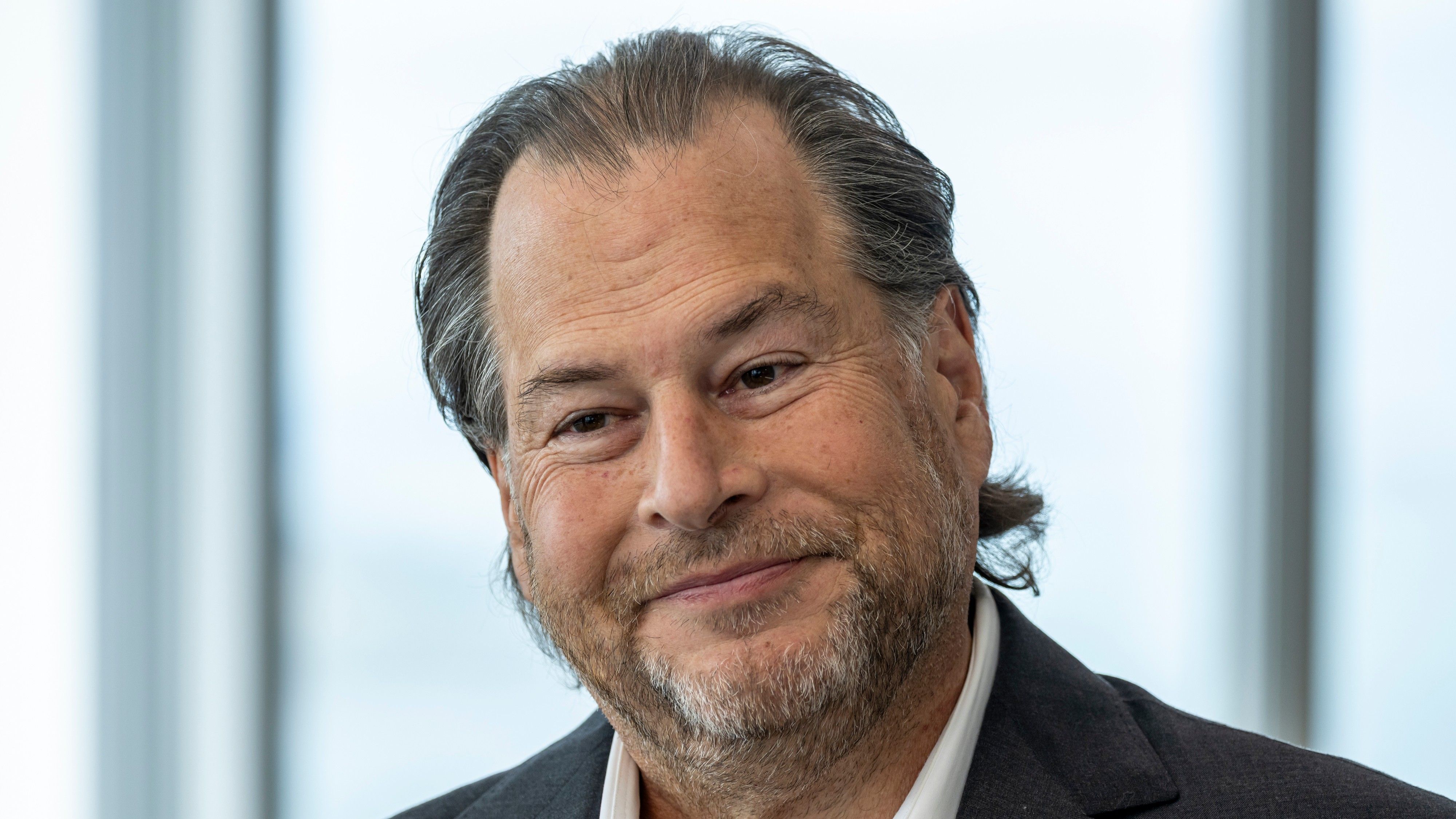Marc Benioff says "AI is doing 30-50% of the work at Salesforce now" — after debating software engineer hires due to incredible productivity gains from agentic AIs
Salesforce's CEO revealed that the company is using AI to handle up to half of its workload.

All the latest news, reviews, and guides for Windows and Xbox diehards.
You are now subscribed
Your newsletter sign-up was successful
Generative AI is revolutionizing our lives across almost all areas, including medicine, entertainment, computing, and plenty more. However, the technology also ships with critical challenges like existential doom and augmenting jobs using AI. Salesforce, a key player in the AI landscape, is already using AI to automate workloads.
While in a recent interview with Bloomberg, CEO Marc Benioff revealed that AI is doing up to 50% of the work at Salesforce (via CNBC):
“All of us have to get our head around this idea that AI could do things, that before, we were doing, and we can move on to do higher-value work.”
This news doesn't entirely come as a surprise, as Benioff previously indicated that Salesforce is "seriously debating" hiring engineers in 2025.
Job security is among the major concerns riddling most people as AI becomes more prevalent and gains broad adoption. Last year, former OpenAI CTO Mira Murati indicated that AI would create new job opportunities while simultaneously killing some professions:
"Some creative jobs maybe will go away. But maybe they shouldn't have been there in the first place — you know, if the content that comes out of it is not very high quality."
AI's razor-sharp cut on jobs
Interestingly, Microsoft co-founder Bill Gates seemingly echoed similar sentiments, claiming that AI will replace humans for most things. However, he indicated that humans will have control over the narrative, preserving certain tasks for themselves. He joked that no one would like to watch computers playing baseball.
NVIDIA CEO Jensen Huang predicted that coding might already be dead in the water with the broad adoption of AI. He recommended that the future generation should chase down other future-proof career paths, including biology, farming, and manufacturing.
However, Anthropic CEO Dario Amodei claims that AI could potentially cut up to 50% of entry-level white-collar jobs, leaving Gen Z out of work:
"We, as the producers of this technology, have a duty and an obligation to be honest about what is coming. It's a very strange set of dynamics, where we're saying: 'You should be worried about where the technology we're building is going.'"
We are going through a global labor shortage, we see all these declining birth rates. We understand that it's harder to hire, especially people right here in the United States in sales and service. And this is going to give us the ability to do more. And as an example of that, look at engineering.
Salesforce CEO, Marc Benioff
Bill Gates claimed that biologists, energy experts, and coders would survive the brutal AI revolution because the fields are too complex to fully augment using AI.
However, AI isn't entirely bad. Microsoft's special June Work Trend Index report revealed that most employees are seemingly trapped in the infinite workday, forcing them to carry work home with little regard for official work hours.
Most employees who took part in the survey claimed that Sundays feel like "the new Monday" as they are constantly checking their emails and Microsoft Teams in preparation for the next day.
The report further revealed that AI could be leveraged to help employees strike a healthy work-life balance, by throwing mundane and repetitive tasks to AI, allowing sufficient time to handle more complex tasks.
"By deploying AI and agents to streamline low-value tasks—status meetings, routine reports, admin churn—leaders can reclaim time for what moves the business: deep work, fast decisions, and focused execution."
It'll be interesting to see if corporations hop onto the AI bandwagon and deploy the technology across their workflows. It will also be interesting to see its overall impact on the workforce and whether it will create new opportunities for the professionals it is potentially set to replace.

Kevin Okemwa is a seasoned tech journalist based in Nairobi, Kenya with lots of experience covering the latest trends and developments in the industry at Windows Central. With a passion for innovation and a keen eye for detail, he has written for leading publications such as OnMSFT, MakeUseOf, and Windows Report, providing insightful analysis and breaking news on everything revolving around the Microsoft ecosystem. While AFK and not busy following the ever-emerging trends in tech, you can find him exploring the world or listening to music.
You must confirm your public display name before commenting
Please logout and then login again, you will then be prompted to enter your display name.

